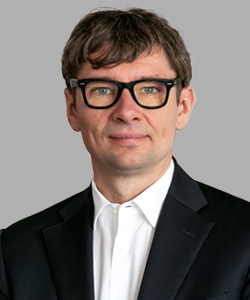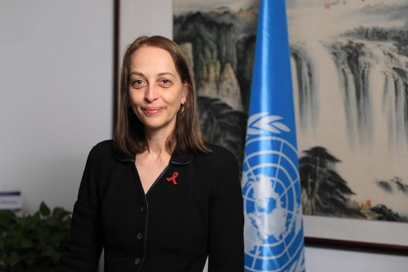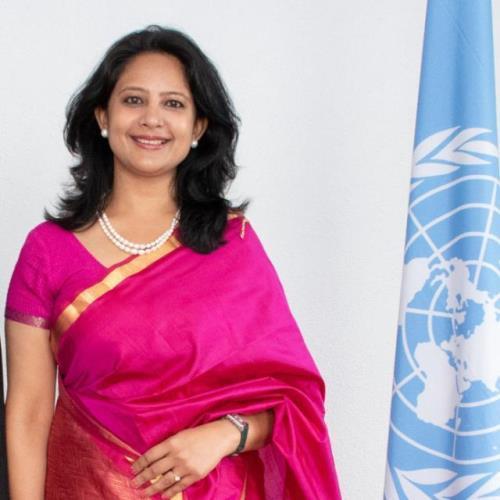Third Meeting of the WSIS Forum 2023 Open Consultation Process
WSIS
Session 135
The World Summit on the Information Society (WSIS) Forum 2023 Open Consultation process (OCP) aims at ensuring a participatory and inclusive spirit of the Forum. This process actively engages multistakeholders in the preparatory process to ensure broad ownership and further improvements of the Forum. The Open Consultation Process will include a collection of inputs from regional and national WSIS related events and therefore work towards shaping the themes and format of the WSIS Forum 2023.
The WSIS Forum represents the world's largest annual gathering of the ‘ICT for development’ community. The WSIS Forum, co-organized by ITU, UNESCO, UNDP, and UNCTAD, in close collaboration with all WSIS Action Line Facilitators/Co-Facilitators, has proven to be an efficient mechanism for coordination of multistakeholder implementation activities, information exchange, creation of knowledge, sharing of best practices and continues to provide assistance in developing multi-stakeholder and public/private partnerships to advance development goals. This Forum will provide structured opportunities to network, learn, and participate in multistakeholder discussions and consultations on WSIS implementation. The Agenda and Programme of the Forum will be built on the basis of the submissions received during the Open Consultation Process and following the outcomes of the WSIS Forum 2022.
Furthermore, the WSIS Forum 2023 will provide an opportunity to serve as a platform to highlight the achievements of WSIS Action Lines in collaboration with the UN Agencies involved and provide information and analyses of the implementation of WSIS Action Lines since 2005.
The WSIS Forum 2023 is scheduled to be held from 13 to 17 March 2023 at the ITU Headquarters premises in Geneva, with the support of remote participation. The theme of the WSIS Forum 2023 is WSIS Action Lines for building back better and accelerating the achievement of the SDGs.
This session is part of the Open Consultation Process phases (phase V) that aims to provide results of the WSIS Forum 2023 Open Consultation Process as well as updates on the preparations for the WSIS Forum 2023.
Draft Agenda
Opening Remarks (WSIS Forum co-organisers):
ITU: Mr. Tomas Lamanauskas, Deputy Secretary-General
UNESCO: Dr. Marielza Oliveira, Director for Partnerships and Operational Programme Monitoring Communications and Information
2. WSIS Forum 2023 Briefing and Updates:
Ms. Gitanjali Sah, Strategy and Policy Coordinator, ITU
- WSIS Forum 2023 Open Consultation Process
- Thematic focus and format of event:
- High-Level Track (High-Level Policy Sessions, High-Level Track Facilitators, High-Level Dialogues, Ministerial Round Table)
- Forum Track (Thematic and Country Workshops, WSIS Action Line Facilitation Meetings, UNGIS, Partnership on Measuring ICT for Development, Exhibitions)
- WSIS Prizes 2023 and WSIS Stocktaking 2023
- Other activities:
- Hackathon – Digital GovHack: Advancing the Digital Economy by Leveraging Emerging Technologies
- WSIS Forum 2023 Special Tracks and Special Initiatives
- WSIS Forum 2023 Special Prizes
3. Discussion with WSIS stakeholders



-
 C1. The role of governments and all stakeholders in the promotion of ICTs for development
C1. The role of governments and all stakeholders in the promotion of ICTs for development
-
 C2. Information and communication infrastructure
C2. Information and communication infrastructure
-
 C3. Access to information and knowledge
C3. Access to information and knowledge
-
 C4. Capacity building
C4. Capacity building
-
 C5. Building confidence and security in use of ICTs
C5. Building confidence and security in use of ICTs
-
 C6. Enabling environment
C6. Enabling environment
-
 C7. ICT applications: benefits in all aspects of life — E-government
C7. ICT applications: benefits in all aspects of life — E-government
-
 C7. ICT applications: benefits in all aspects of life — E-business
C7. ICT applications: benefits in all aspects of life — E-business
-
 C7. ICT applications: benefits in all aspects of life — E-learning
C7. ICT applications: benefits in all aspects of life — E-learning
-
 C7. ICT applications: benefits in all aspects of life — E-health
C7. ICT applications: benefits in all aspects of life — E-health
-
 C7. ICT applications: benefits in all aspects of life — E-employment
C7. ICT applications: benefits in all aspects of life — E-employment
-
 C7. ICT applications: benefits in all aspects of life — E-environment
C7. ICT applications: benefits in all aspects of life — E-environment
-
 C7. ICT applications: benefits in all aspects of life — E-agriculture
C7. ICT applications: benefits in all aspects of life — E-agriculture
-
 C7. ICT applications: benefits in all aspects of life — E-science
C7. ICT applications: benefits in all aspects of life — E-science
-
 C8. Cultural diversity and identity, linguistic diversity and local content
C8. Cultural diversity and identity, linguistic diversity and local content
-
 C9. Media
C9. Media
-
 C10. Ethical dimensions of the Information Society
C10. Ethical dimensions of the Information Society
-
 C11. International and regional cooperation
C11. International and regional cooperation
-
 Goal 1: End poverty in all its forms everywhere
Goal 1: End poverty in all its forms everywhere
-
 Goal 2: End hunger, achieve food security and improved nutrition and promote sustainable agriculture
Goal 2: End hunger, achieve food security and improved nutrition and promote sustainable agriculture
-
 Goal 3: Ensure healthy lives and promote well-being for all
Goal 3: Ensure healthy lives and promote well-being for all
-
 Goal 4: Ensure inclusive and equitable quality education and promote lifelong learning opportunities for all
Goal 4: Ensure inclusive and equitable quality education and promote lifelong learning opportunities for all
-
 Goal 5: Achieve gender equality and empower all women and girls
Goal 5: Achieve gender equality and empower all women and girls
-
 Goal 6: Ensure access to water and sanitation for all
Goal 6: Ensure access to water and sanitation for all
-
 Goal 7: Ensure access to affordable, reliable, sustainable and modern energy for all
Goal 7: Ensure access to affordable, reliable, sustainable and modern energy for all
-
 Goal 8: Promote inclusive and sustainable economic growth, employment and decent work for all
Goal 8: Promote inclusive and sustainable economic growth, employment and decent work for all
-
 Goal 9: Build resilient infrastructure, promote sustainable industrialization and foster innovation
Goal 9: Build resilient infrastructure, promote sustainable industrialization and foster innovation
-
 Goal 10: Reduce inequality within and among countries
Goal 10: Reduce inequality within and among countries
-
 Goal 11: Make cities inclusive, safe, resilient and sustainable
Goal 11: Make cities inclusive, safe, resilient and sustainable
-
 Goal 12: Ensure sustainable consumption and production patterns
Goal 12: Ensure sustainable consumption and production patterns
-
 Goal 13: Take urgent action to combat climate change and its impacts
Goal 13: Take urgent action to combat climate change and its impacts
-
 Goal 14: Conserve and sustainably use the oceans, seas and marine resources
Goal 14: Conserve and sustainably use the oceans, seas and marine resources
-
 Goal 15: Sustainably manage forests, combat desertification, halt and reverse land degradation, halt biodiversity loss
Goal 15: Sustainably manage forests, combat desertification, halt and reverse land degradation, halt biodiversity loss
-
 Goal 16: Promote just, peaceful and inclusive societies
Goal 16: Promote just, peaceful and inclusive societies
-
 Goal 17: Revitalize the global partnership for sustainable development
Goal 17: Revitalize the global partnership for sustainable development